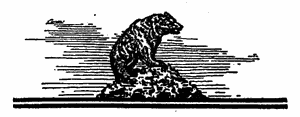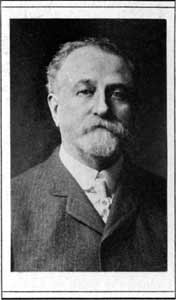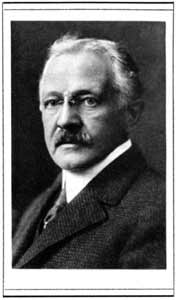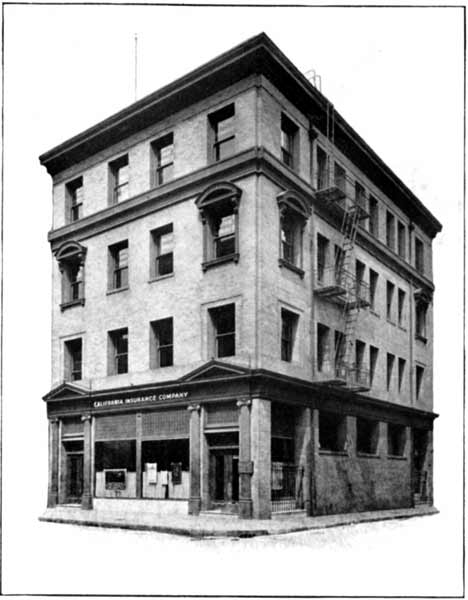| Home -> Other California History Books -> The Spirit of 1906 - The Final Supreme Effort | |||
 |
|||
|
The Final Supreme Effort
|
|||
|
The annual statement of the company at the end of the year showed beyond the peradventure of a doubt that the company had kept the faith, but it was left with a very attenuated surplus. Then business began to grow by leaps and bounds. The bread which had been cast upon the waters was returning and another problem now confronted the company - to protect the reserves on the rapidly increasing income. This required a working surplus and meant more assessments which seemed to be adding insult to injury. The stockholders had already provided the funds to pay losses and to now ask for more money for any other than loss-paying purposes, gallant as was the spirit of those directly interested, seemed dangerous. The directors and some of the more prominent stockholders met informally and discussed the situation and the concensus of opinion was that the honor of the company demanded that it continue to the end to accomplish to the fullest that for which so many financial sacrifices had been made - to take any other course, to discontinue, to fall down, or to break faith with those who had given us their confidence would be suicidal. In this deduction proof was given of the sound judgment and business acumen of those who bore the brunt of the burden in those hot days of battle. They took the position that the reputation which the company had already builded was an asset of almost unlimited value and realized that the peak of the mountain was just a few steps further on - that summit from which the company could look out upon the valley of success and reap the full reward for all the sacrifices its stockholders had made. Plan after plan was submitted for financing, change after change was suggested, but for a time concerted action seemed almost impossible of attainment. Finally, I called upon the largest stockholder and treasurer of the company, Mr. Geo. L. Payne, in his office at the Payne Bolt Works. I laid before him the plan of increasing the capital stock from six thousand shares to ten thousand shares by the sale of four thousand shares at sixty dollars per share which would realize for the company a total amount of $240,000 of which $160,000 could be applied to capital, bringing that item up to $400,000, and $80,000 to surplus. While this did not make the surplus as much as was desirable, we were used to economies, to making every dollar count. This has always been a feature of the management of the company. With this sum and by a continuance of conservative methods and proper management we believed it possible to provide for all contingencies. Mr. Payne listened quietly, a pad of paper before him and a pencil in his hand. When I had exhausted every argument and made the best possible statement of the exact conditions, he stated that he realized fully the gravity of the position and then came the flood. He said that, if it became necessary, he, as the largest stockholder in the company, would endorse the proposition to the extent of taking the entire issue. The balance of the consummation of the idea was merely a matter of detail. Another meeting of the stockholders was called and of the many meetings that we had gone through, this stands out brightest of all. The plan was presented and as might naturally be expected invoked little enthusiasm and did not appear to interest anybody. Mr. Payne quietly rose to his feet, explained the position of the company as he saw it and then shocked the assemblage into activity by making public the announcement of his willingness to take the entire issue of additional stock. That was a flash of optimistic lightning the bolt of which apparently struck every man in the room. They sat up, took notice, and awoke to the fact that they were possibly missing something worth while. The outcome was that Mr. Payne was only able to secure his pro rata as the entire issue was promptly over subscribed by the stockholders, it being understood that the right of subscription should be confined rigidly to stockholders of record. Never in my business career have I seen the value or virtue of a leader expressed in so forceful a manner as in the effect of Mr. Payne's offer upon that meeting. It was the greatest evidence of applied psychology that ever it has been my good fortune to experience.
|
|||
 |
|||
|
W. E. Dean, President to the Year 1914, now Vice-President and Director.
|
|||
 |
|||
|
E. T. Niebling, President to June 1919, now Director
|
|||
 |
|||
|
Office and building of the Company, Nos. 550-558 Sacramento Street, San Francisco, Calif., from September 1907 to Completion of new building.
|
|||